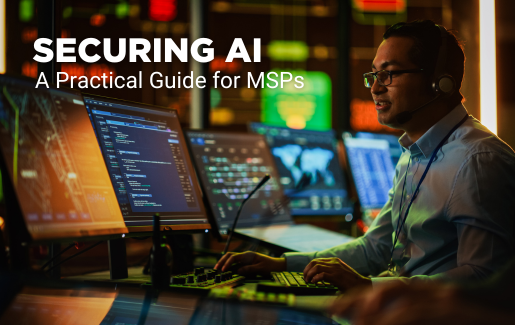 Ethics certainly creates a buzz in the business world. Ethical issues such as how we treat others, use information, engage with employees, manage resources, approach sustainability, and impact the world around us all affect how we view companies. In fact, the inappropriate treatment of people and the communities we live in are often the subject of scrutiny and can signal the difference between business success or failure. That’s why businesses (even tech giants such as Microsoft) often strive for ethical decision making and practices.
Ethics certainly creates a buzz in the business world. Ethical issues such as how we treat others, use information, engage with employees, manage resources, approach sustainability, and impact the world around us all affect how we view companies. In fact, the inappropriate treatment of people and the communities we live in are often the subject of scrutiny and can signal the difference between business success or failure. That’s why businesses (even tech giants such as Microsoft) often strive for ethical decision making and practices.
Most Important Ethical Issues in Technology
Businesses today are faced with several ethical challenges. Critical decisions have to be made to ensure we are protecting personal freedoms and using data appropriately. Which ethical issues are the most important in 2024? Here are the top five.
Misuse of Personal Information
One of the primary ethical dilemmas in our technologically empowered age revolves around how businesses use personal information. As we browse internet sites, make online purchases, enter our information on websites, engage with different businesses online and participate in social media, we are constantly providing personal details. Companies often gather information to hyper-personalize our online experiences, but to what extent is that information actually impeding our right to privacy?
Personal information is the new gold, as the saying goes. We have commoditized data because of the value it provides to businesses attempting to reach their consumer base. But when does it go too far? For businesses, it’s extremely valuable to know what kind of products are being searched for and what type of content people are consuming the most. For political figures, it’s important to know what kind of social or legal issues are getting the most attention. These valuable data points are often exploited so that businesses or entities can make money or advance their goals. Facebook in particular has come under fire several times over the years for selling personal data it gathers on its platform.
Misinformation and Deep Fakes
One thing that became evident during the 2016 and 2020 U.S. presidential elections was the potential of misinformation to gain a wider support base. The effect created polarization that has had wide-reaching effects on global economic and political environments.
In contrast to how information was accessed prior to the internet, we are constantly flooded with real-time events and news as it breaks. Celebrities and political figures can disseminate opinions on social media without fact checking, which is then aggregated and further spread despite its accuracy—or inaccuracy. Information no longer undergoes the strenuous validation process that we formerly used to publish newspapers and books.
Similarly, we used to believe that video told a story that was undeniably rooted in truth. But deepfake technology now allows such a sophisticated manipulation of digital imagery that people appear to be saying and doing things that never happened. The potential for privacy invasion and misuse of identity is very high with the use of this technology.
Lack of Oversight and Acceptance of Responsibility
Most companies operate with a hybrid stack, comprised of a blend of third-party and owned technology. As a result, there is often some confusion about where responsibility lies when it comes to governance, use of big data, cybersecurity concerns and managing personally identifiable information or PII. Whose responsibility is it really to ensure data is protected? If you engage a third party for software that processes payments, do you bear any responsibility if credit card details are breached? The fact is that it’s everyone’s job. Businesses need to adopt a perspective where all collective parties share responsibility.
Similarly, many experts lobby for a global approach to governance, arguing that local policing is resulting in fractured policy making and a widespread mismanagement of data. Similar to climate change, we need to band together if we truly want to see improvement.
Use of AI
Artificial intelligence certainly offers great business potential. But, at what point do AI systems cross an ethical line into dangerous territory?
- Facial recognition: Use of software to find individuals can quickly become a less-than-ethical problem. According to the NY Times, there are various concerns about facial recognition, such as misuse, racial bias and restriction of personal freedoms. The ability to track movements and activity quickly morphs into a lack of privacy. Facial recognition also isn’t foolproof and can create bias in certain situations.
- Replacement of jobs: While this is anticipated to a certain degree, AI is meant to increase automation of low-level tasks in many situations so that human resources can be used on more strategic initiatives and complicated job duties. The large-scale elimination of jobs has many workers concerned about job security, but AI is more likely to lead to job creation.
- Health tracking: The pandemic brought contact tracing into the mainstream. Is it ethical to track the health status of people and how will that impact the limitations we place on them?
- Bias in AI technology: Technology is built by programmers and inherits the bias of its creators because humans inherently have bias. “Technology is inherently flawed. Does it even matter who developed the algorithms? AI systems learn to make decisions based on training and coding data, which can be tainted by human bias or reflect historical or social inequities,” according to Forbes. Leading AI developer Google has even experienced an issue where AI software believes male nurses and female historians do not exist.
Autonomous Technology
Self-driving cars, robotic weapons and drones for service are no longer a thing of the future—they’re a thing of the present and they come with ethical dilemmas. Robotic machines in place of human soldiers is a very real possibility, along with self-driving cars and package delivery via unmanned drone.
Autonomous technology packs a punch when it comes to business potential, but there is significant concern that comes with allowing programmed technology to operate seemingly without needed oversight. It’s a frequently mentioned ethical concern that we trust our technology too much without fully understanding it.
Ethical Practices in Technology
Unlike business ethics, ethical technology is about ensuring there is a moral relationship that exists between technology and users.
Respect for Employees and Customers
Businesses that engage in ethical technology have a firm moral sense of employee rights and customer protections. Data is valuable, but the employees and customers who power your business are undoubtedly your greatest asset. Take care to always observe responsible protections for employees and customers to practice ethical technology.
Moral Use of Data and Resources
Data is undoubtedly something of value for businesses. It allows companies to target their marketing strategies and refine product offerings, but it can also be an invasive use of privacy bringing many ethical considerations to the forefront. Data protection measures and compliance procedures can help ensure that data isn’t leaked or used inappropriately.
Responsible Adoption of Disruptive Tech
Digital growth is a business reality. Disruptive tech often isn’t just a way to outpace the competition—it’s the only way to break even. But embracing new technologies doesn’t have to coincide with an ethical challenge. Do your due diligence to ensure that the technology you adopt has protections in place and you’ll be well on your way to practicing ethical tech.
Create a Culture of Responsibility
Ultimately, we need to create a culture of responsibility within technology. If the information technology workforce and industry giants believe they are responsible for the safe and ethical usage of technology, then we will see more governance and fair use of data.
Emerging ethical dilemmas in science and technology
New ethical problems regarding the use of science and technology are always arising. When is it right to use science and technology to apply to real-life scenarios and when does it impede human rights?
- Health tracking and the digital twin dilemma: Should organizations be able to create your twin in code and experiment on it to advance healthcare initiatives? And when does that become a practice of exploitation?
- Neurotechnology and privacy: Neurotechnology is nothing new, but new advances allowing the use of technology to gradually change behavior or thought patterns poses severe questions about privacy.
- Genetic engineering: While possessing great potential for human health and the recovery from damaging genetic mutations, there are considerable ethical considerations that surround the editing of the human genome.
- Weaponization of technology: While there is a lessened chance for loss of life, there are sincere ethical problems with weaponizing technology. At what point do we trust our technology to fight a war for us?
Ethical decisions in technology should not be taken lightly. If we believe that technology can help to solve the world’s problems, addressing the ethics involved is the only way to us get there.
Connect with industry peers and participate in conversations about the technology topics that matter most. Learn more about the CompTIA Community.

 Add CompTIA to your favorite RSS reader
Add CompTIA to your favorite RSS reader

